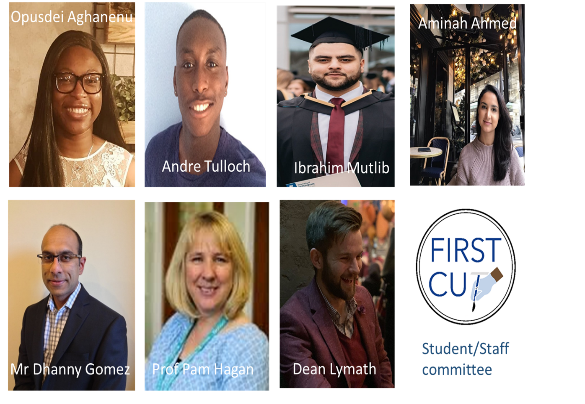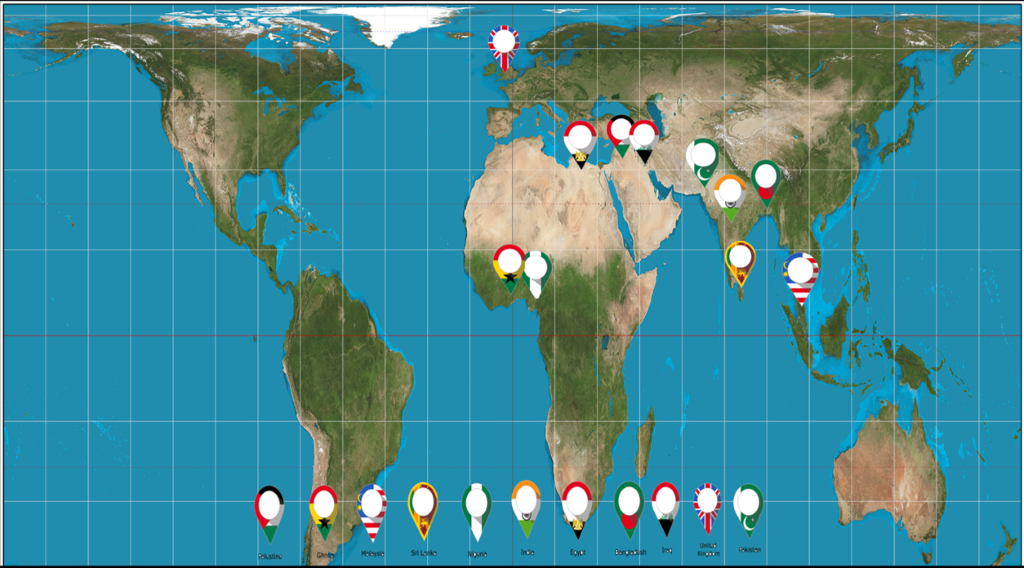October 16, 2020, by School of Medicine
50 at 50: Making the First Cut – Increasing diversity in surgical careers

Surgeons aren’t born. They’re made. A cliché statement, we know, but true in every sense of the word.
As medical students we commit to spending a lifetime training to be effective doctors and providing quality care for our patients. We can all speak to a time where we did whatever it took to get into medical school. But what happens after that? Our medical career route is shaped by the experiences we have both before and during our medical studies. For most students, this will change multiple times as they progress through the course and Foundation training.
Apart from some anatomy teaching and some rotations, most students have very little contact with surgeons and little opportunity to explore this specialty until the later parts of their course. Surgery can then be like Marmite when you get a first taste for it. You either love it or hate it!
A negative stereotype still exists among students (and the public) that the typical successful surgeon is a white male from a privileged background who is career-driven and intimidating. This has, amongst other things, put some medical students off even considering exploring a surgical career altogether. Historically, surgical specialties in the medical literature are described as having low diversity amongst surgeons in terms of gender1, ethnicity2 and disability3. These define the underrepresented groups in surgery, including women, students or trainees from Black and Minority Ethnic (BAME) backgrounds or those who possess visible or hidden disabilities.
This will have a detrimental effect on future generations of surgeons. Society and our patient population are diverse and multicultural. There is a need now more than ever to ensure that surgical specialties have proper representation from a variety of backgrounds to better meet the needs of patients. Given that surgical careers are also known to be competitive, there’s an additional pressure for students to be consistently ‘on the job’, standing out from the crowd and seeking opportunities to better their prospects whilst maintaining their academic performance on the course. Without proper exposure to surgery and guidance from seniors with a background similar to their own, students from underrepresented groups will remain disadvantaged when considering surgery as a career.
It all comes down to a simple point really… “you cannot be what you cannot see”.
To this end, we have set up an initiative called First Cut (discreetly hidden in the blog title ?) that plans to debunk the myth of ‘the typical successful surgeon’ and break down some of the barriers that we believe deter students from considering a career in surgery. Students who apply to be involved in the First Cut programme and meet the prerequisite criteria will be paired with a surgeon from one of a number of surgical specialties. They will be provided with one-to-one mentorship over the course of 6 months. With this, they’ll have access to numerous opportunities to help them develop an insight into the life of a surgeon, including its challenges and rewards. All mentoring relationships are different, but some potential opportunities could include:
- Careers advice tailored to the mentee’s interests
- Hands-on surgical exposure and experience in theatres, clinics and hospital wards
- Access to a broader network of surgical consultants and trainees
- Opportunities to assist in and undertake independent research and/or audits
- Attendance at local and/or national conferences to present work completed with the mentor
Owing to the need to encourage diversity in surgical careers, the surgeons who have volunteered their time to be a part of this unique and exciting programme also come from a wide range of ethnic and cultural backgrounds, as you can see in our world map below!
So, what makes this programme unique? There have probably been points in our lives where we’ve found people who we look up to and asked them for advice or guidance with something we plan to do. They can tell you the ‘to-do’s’ and ‘not-to-do’s’ for the path you want to take. Mentoring takes this further, creating an environment for students to explore surgery and reflect on their experiences, fine-tuning not just career plans but also boosting their personal development.
This mentorship program for medical students is the first of its kind that involves consultant surgeons from BAME backgrounds, and includes all surgical specialities – Cardiothoracic Surgery, Vascular Surgery, Neurosurgery, Maxillofacial Surgery, ENT Surgery, HPB Surgery, Oesophago-gastric Surgery, Colorectal Surgery, Trauma and Orthopaedic Surgery, Gynaecological cancer surgery, Plastic Surgery, Paediatric Surgery and Urology. Reframing our ways of thinking about diversity in surgery amongst surgeons and at an institutional level will provide opportunities for students to enhance their talents.
Our mentorship scheme also aims to maximise the student’s potential by providing them with the support they need to pursue a career they may have thought wasn’t for them or had never considered. The benefits of the type of mentoring cannot be understated. The Royal College of Surgeons of England (RCSEng) have stated numerous positive takeaways for both mentors and mentees4 including:
- Increased career success and job satisfaction
- Better working relationships with colleagues
- Improved confidence, leadership and problem-solving skills
One of the programme co-leads, Mr Dhanny Gomez, a consultant hepato-pancreatico-biliary (HPB) and laparoscopic surgeon in Nottingham, gave his comments on the scheme:
“Coming from an ethnic minority background, being raised by a single parent, growing up in a lower income family, living in a deprived area with limited facilities, are reasons why some students will be disadvantaged from doing a competitive career like surgery. Throughout my training years, there have been numerous times I have been told not to do surgery. Many of us in surgery have faced challenging times and failures. Determination and inner strength have made us achieve our ambition.”
As you can see, our mentors will be positive role models with varied and extensive experience in their respective fields. They’re very keen to help inspire and encourage medical students who are interested in exploring a surgical career. Our First Cut surgical mentor programme was launched on 12th October 2020 and in the first instance there will be 30 places for CP2 students available.

By the First Cut team,
Opusdei Aghaneu – Fourth Year Medical Student
André Tulloch – Fourth Year Medical Student
Ibrahim Mutlib – Final Year Medical Student
Aminah Ahmed – Fourth Year Medical Student
Mr Dhanny Gomez – Consultant HPB Surgeon at Nottingham University Hospitals and Project Co-Lead
Professor Pamela Hagan – Professor of Medical Education and Project Co-Lead
Dean Lymath – University of Nottingham Project Support Coordinator
Reference
- Skinner H, Bhatti F. Women in surgery. The Bulletin of the Royal College of Surgeons of England. 2019 Sep;101(suppl_6):12-4.
- Ulloa JG, Viramontes O, Ryan G, Wells K, Maggard-Gibbons M, Moreno G. Perceptual and Structural Facilitators and Barriers to Becoming a Surgeon: A Qualitative Study of African-American and Latino Surgeons. Academic medicine: Journal of the Association of American Medical Colleges. 2018 Sep;93(9):1326.
- Snashall D. Doctors with disabilities: licensed to practise?. Clinical Medicine. 2009 Aug;9(4):315.
- Royal College of Surgeons of England – Mentoring Schemes. https://www.rcseng.ac.uk/standards-and-research/support-for-surgeons-and-services/professional-support-for-surgeons/mentoring/mentoring-schemes/ [Accessed 20 September 2020]
No comments yet, fill out a comment to be the first


Leave a Reply